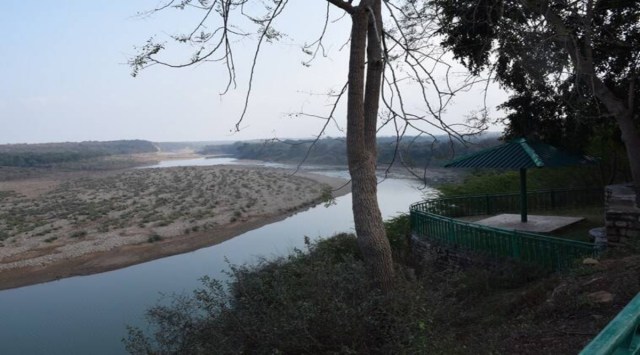After several months of delay, twelve wild cheetahs from South Africa will finally be arriving at Kuno National Park in Madhya Pradesh around noon on Saturday. Last year, eight felines were brought from Namibia to the same park as part of India’s cheetah revival project, according to a wildlife expert associated with the project.
The seven male and five female cheetahs will be transported from the OR Tambo International Airport in Gauteng, South Africa to Kuno National Park aboard an Indian Air Force (IAF) transport aircraft on Friday evening, as reported by a project participant and expert to PTI.
The South African cheetahs will first arrive at the Gwalior Air Force base in Madhya Pradesh on Saturday morning and will then be transported by IAF helicopters to Kuno National Park in Sheopur district, approximately 165km away, 30 minutes later.
Upon arrival at Kuno National Park around noon, the cheetahs will be placed in quarantine enclosures, as explained by the expert.
Uttam Sharma, the Director of Kuno National Park, stated that they have prepared 10 quarantine enclosures for the South African cheetahs, including two facilities for pairs of cheetah brothers.
“We are fully prepared to receive the big cats on Saturday,” he added.
In early September last year, a delegation from South Africa visited Kuno National Park to assess the arrangements for housing the cheetahs. A Memorandum of Understanding (MoU) was signed between India and South Africa last month for the translocation of the cheetahs.
The wildlife expert mentioned that South Africa has donated the cheetahs to India, but India is required to pay USD 3,000 for the capture of each cheetah to the African nation before their translocation.
The airlifting of the South African cheetahs was initially planned for August last year, but was delayed due to the formal translocation agreement between the two countries not being signed.
Concerns were raised in December over the health of the South African cheetahs due to the delay in the MoU signing for their translocation. The animals had been quarantined in South Africa since July 15 in anticipation of their transfer to India, potentially affecting their fitness.
Furthermore, it was reported that the 12 South African cheetahs had not hunted for themselves after being kept in enclosures, raising concerns about their health and fitness.
On September 17, Prime Minister released eight cheetahs flown in from Namibia into Kuno National Park, marking the beginning of the revival of their population in India where they became extinct seven decades ago. The Namibian cheetahs are currently in hunting enclosures at the park before their full release into the wild.
In August, the South African cheetahs selected for translocation had completed one month in quarantine, but could not be airlifted to Kuno National Park due to lack of approval from the South African government. The eight Namibian cheetahs also could not be brought to the park due to incomplete quarantine period.
According to Indian wildlife laws, a month-long quarantine is mandatory before importing animals, and they are required to be kept in isolation for another 30 days after arrival in the country.
The spotted animals’ metapopulation in South Africa has risen to 504 from 217 in 2011, indicating a positive trend for their population.
The last cheetah in India died in 1947, and the species was declared extinct in 1952. Under the United Progressive Alliance (UPA) government, former Union Environment Minister Jairam Ramesh initiated “Project Cheetah” in 2009 with the aim of reintroducing the wild cats in India.

























+ There are no comments
Add yours